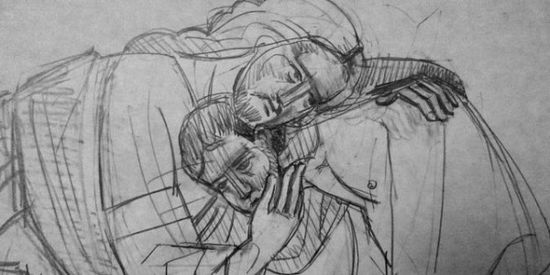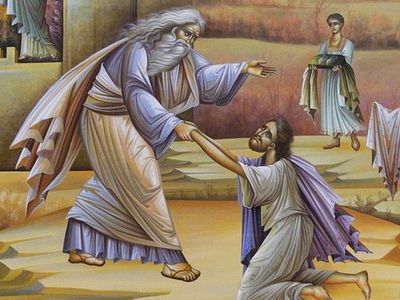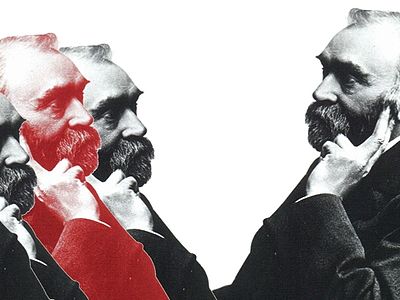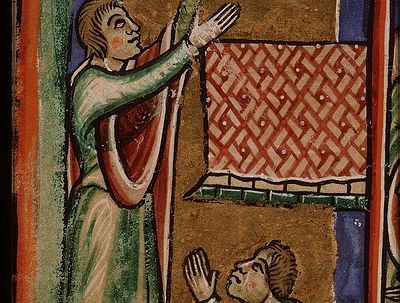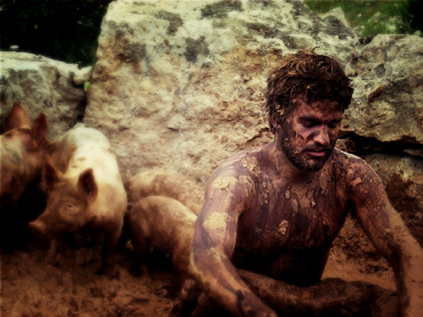 Photo: http://www.markmallett.com/
Photo: http://www.markmallett.com/
As often happens, we destroy the deep, full importance and meaning of relationships, because we are used to a loving person giving to us—giving generously, giving constantly, never thinking of himself: just giving; and how easily we gradually forget the one who gives, remembering just the gifts. It happened with the Prodigal Son, but it so happens constantly in our human relationships…
The Prodigal Son said to his father: “Give me what will be mine when you die;” in other words: “Let’s agree that you no longer exist for me; I only need what you can give me…” And as the Prodigal Son, we then for a while live off these gifts; our heart is yet warmed with the warmth given to us, our mind yet lives on the riches of our bygone association… As long as we are able to live on these gifts, we are surrounded by people who want to live off of that which we received: we are, like the Prodigal Son, surrounded by the people that swarmed around him while he was yet rich from the riches of his father. But when nothing of the riches remained, they fell away. And impoverishment entered his life again: he renounced one human relationship, and now he himself is renounced by others; he remained alone…
Life is possible only in relation to God, and in relation to others people, as if in an ongoing mutual exchange, when we are as much givers as receivers of the generosity of men and God.
And then the time comes for us to deeply and closely reflect upon ourselves, and understand that we have sinned against Heaven, sinned against our father, against our brother, against our loved ones, against our sister—against everyone around us. We have sinned—meaning we severed the tie, desiring to be free of them… And then the time comes to return: back home, there to where they fed us, gave generously to us, cared for us, and in the end, to God, the Font of all blessings.
But so often, trying to return, we meet not the father of the wayward son, but the older brother, who never had a real relationship of love or friendship, neither with us nor with our father. We meet him who can boast that he was always diligently, honestly “working” in his father’s home, doing everything necessary—but indifferently—he fulfilled his duties as those who cannot escape, or as a transaction, as work for money. We must reflect on this, because in our experience of human relations we are not always just the Prodigal Son—we so often are the older brother. Another comes to us and says, “It was my fault that I fell out of contact with you, I behaved as a parasite, I want to be different!” and we meet them with the words (or gesture), “There was a time when I saw you differently! There was a time when we lived in fellowship, which was precious to me, but you broke it! My wounds have healed, I don’t want to open more!” How often are we the older brother?
And we behave so unlike the father, who never stopped loving his wayward son, even when this lost one renounced him, rejected him, waiting for the time “when he would die,” to take control of everything he had accumulated through years of labor, wisdom, and sacrificial love…
But the father runs forward to meet his lost son. Have we ever acted this way?... Would we be ready to give him our best clothes, that is, to envelop him with our former relationship? Would we be ready, when he squandered our treasure, disparaged us, and robbed us, to entrust him with our ring, giving him power over our identity, our property, and our honor?
All of these elements of this tragic and wondrous parable are interweaved within every one of us. But it is not enough to discover this; having discovered who we are, we must do something; we must make a decision, we must denounce that identity which we had until now, return, and beseech forgiveness and mercy. It is easy to ask forgiveness from God, because God visibly and palpably never sends us away from Himself empty; He never says to us, “Depart from Me!” But to ask forgiveness from those whom we abused, and who offended us…
Taken from the bulletin of Moscow's Zachetevsky Monastery on the Sunday of the Prodigal Son, 2017
